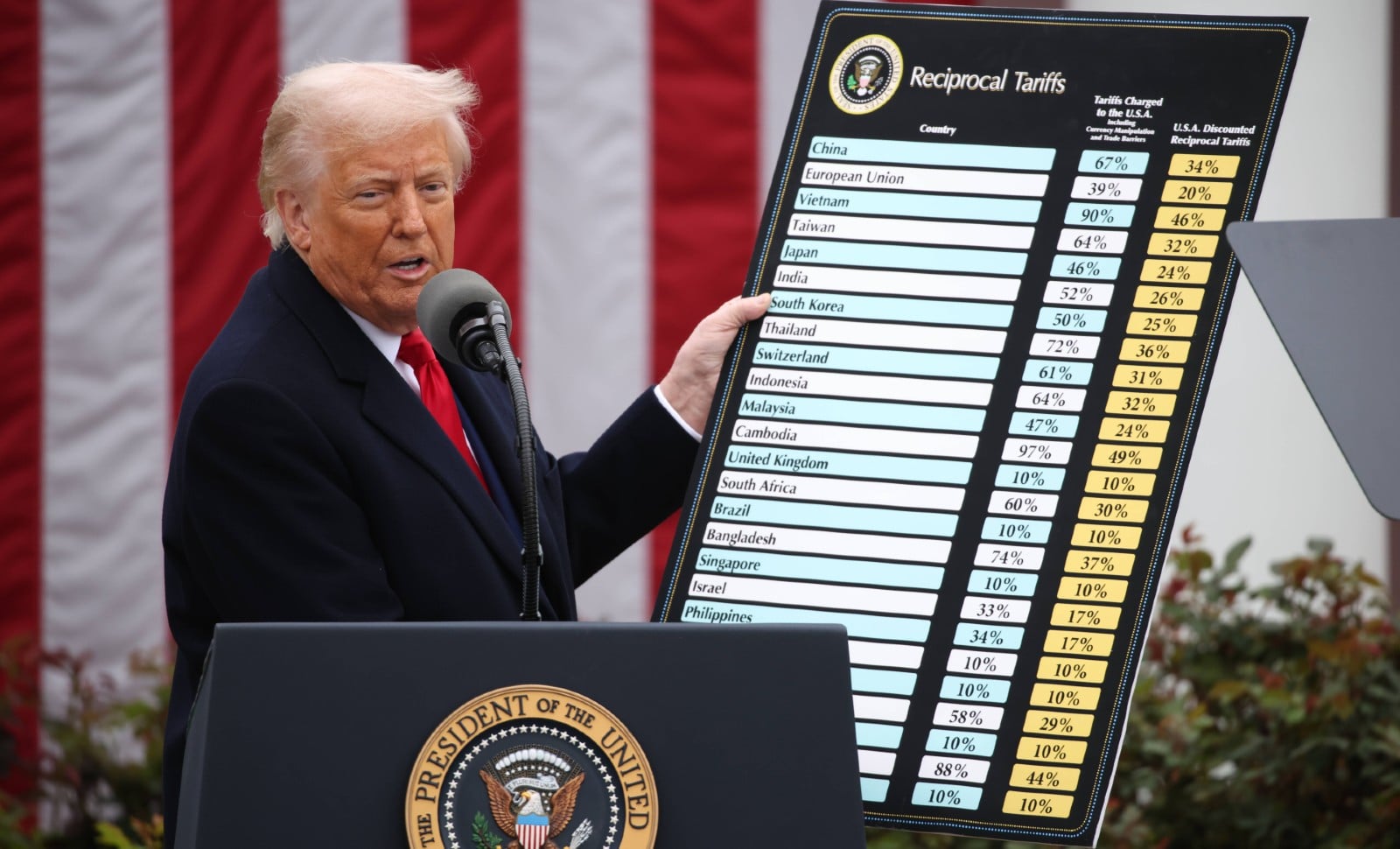In assessing Donald Trump's first 100 days in office, the French media emphasize—with considerable irony—the president's approval rating, which currently stands at around 45%. However, they fail to mention that Emmanuel Macron's approval rating is at 25%, while François Bayrou—who was appointed Prime Minister just a month before the American president took office—struggles to stay above 20%. Certainly, Trump's personality, his outrageousness, his attitudes, and his negotiating methods can sometimes be disconcerting. However, the key is not the form but the substance of his policies and strategy.
The Trump revolution is underway and it will be beneficial for the United States as well as for the free world; and contrary to what most French media outlets chorus repeatedly repeat, the only ones who might be worried about it are dictatorships and authoritarian regimes, notably China, Russia, Iran, Turkey, and North Korea.
President Trump's political initiatives must be understood as a comprehensive strategy in which everything is interconnected. They require adjustments that sometimes create disruptions, and where the long-term objective is sometimes not immediately apparent. Some will only produce positive effects over time and with the various stakeholders taking his policies into account. Moreover, unlike professional politicians and ideologues, Donald Trump is pragmatic; he knows how to adapt to the uncertainties he faces.
Fighting Illegal Immigration
During the Biden presidency, the United States experienced an unprecedented wave of illegal immigration. In just a few days, the Trump administration managed to secure the southern border and stem the flow of illegal immigrants. At the same time, its deterrent policies have drastically reduced the arrival of criminals and the importation of drugs, particularly fentanyl, a synthetic drug that has caused hundreds of thousands of deaths in the United States in recent years. In addition, a process of mass expulsion of illegal immigrants has been initiated.
However, in keeping with their constant demonization of Donald Trump, some French media outlets are using misleading terminology to incriminate him; the most striking example being the mistranslation of the English term "deportation" into "déportation" (deportation) to play on its connotation linked to the deportation of Jews during World War II, when in fact it only practices "expulsions" of illegal immigrants… something France struggles to achieve with its infamous OQTF (Foreign Orders for Foreign Nationals).
Foreign Policy in the Service of the United States and the Free World
The international order established in 1945 has shown its ineffectiveness in the face of major crises. Thus, the bombings and invasions of countries by the United States itself—notably Serbia, pounded by Bill Clinton in 1995, and Iraq, invaded by George W. Bush in 2003—as well as the Rwandan genocide in 1994, the 500,000 deaths in Syria over the past fifteen years, and Russia's invasion of Ukraine in 2022—following the seizure of Crimea in 2014—have clearly demonstrated that the international order has descended into anarchy.
Faced with this, Donald Trump has chosen to confront crises, attempt to end ongoing wars, and restore the United States' deterrent capacity.
He has established a diplomacy that serves the United States and the free world, notably securing, since coming to power, the release of 47 American hostages or prisoners around the world. Contrary to popular belief in France, Donald Trump is not interested in the Nobel Peace Prize he is suspected of courting. However, he does take spheres of influence into account in the negotiations he engages with various international actors. It is in this spirit that he ensured that the Chinese company that managed the Panama Canal was excluded, but also that he expressed his desire to move closer—sometimes too eagerly, I must admit—to Greenland and Canada, both of which are part of the American sphere of influence and where China—a strategic American adversary—is seeking to gain a foothold. It is also in this spirit that, far from abandoning Europe, he encourages it to achieve its defense autonomy, since there is no guarantee that future American administrations will be well-disposed toward the Old Continent.
The Middle East
In Israel, it is thanks to the proactive approach of the new American president that a ceasefire was reached between Hamas and Israel in January 2025 and that Israeli hostages were released. It was also under his leadership that the Houthis in Yemen—armed and financed by Iran—were considerably weakened, even though the missile attack that struck Israel on Sunday, May 4, promises massive and decisive retaliation. Thus, while Donald Trump appears to be giving a chance to negotiate with Iran to achieve its nuclear disarmament, it is highly likely that recent events will precipitate the prospect of a coordinated attack against Iran or a destabilization of the regime that could lead to the imminent fall of the mullahs; for the greater good of the Iranian people and the Middle East.
The new American administration is pragmatically observing the situation and seeking to find innovative solutions. Thus, while Emmanuel Macron's France is mired in outdated dogmas—notably the concept of "two states for two peoples"—Donald Trump, seeing that this solution is not working, has committed to frank and massive support—military and diplomatic—for the State of Israel to enable it to eradicate the Islamism that has attempted to destroy Israel on October 7, 2023—and more generally the Western world for over 40 years. Here, it is important to recall the youth of the new Trump administration who, with a few exceptions, experienced September 11 as the first historical event of their adult lives; allowing them to grasp the magnitude of the risks that this deadly ideology posed to their lives and way of life.
Ukraine
In Ukraine, far from the propagandists and talk-show generals appearing on some French television stations calling for a prolongation of the war at the risk of triggering World War III, Donald Trump has set himself the goal of ending the fighting, which has already claimed nearly a million Russian and Ukrainian lives (dead and wounded).
Donald Trump seems to be losing patience with Vladimir Putin and could therefore establish a balance of power with Russia to force it to stop the fighting. Nothing is certain, but Vladimir Putin now seems to be identified as the obstacle to a cessation of hostilities. With the exception of a few hardliners, everyone understands that Crimea, like the territories conquered by Russia since 2022, will not return to Ukrainian control in the near future. It is in this spirit that negotiations are beginning in order to put an end to the war and guarantee the future security of Kyiv, particularly by uniting the economic and mining interests of the United States and Ukraine.
It's the Economy, Stupid!
One of Donald Trump's main economic goals is to cut taxes for businesses and households, including completely eliminating income tax for those earning less than $200,000 a year. To achieve this, he intends to reduce excessive government spending but also bring money into the Treasury without taxing the American taxpayer.
To this end, he has initiated a trade war to rebalance the tariffs applied reciprocally between the United States and its trading partners. Among his financial and political objectives are the reindustrialization of certain key sectors by getting many large companies—both American and foreign—to commit to investing several trillion dollars, as well as the fight against social and environmental dumping by China.
La hausse des droits de douane a provoqué un choc sur les marchés financiers. Un mois plus tard, les bourses mondiales ont repris le chemin de la hausse et les cours sont aujourd’hui supérieurs à ce qu’ils étaient le 2 avril 2025, à l’annonce de ces fameux droits de douane. De plus, cette stratégie commerciale avait plusieurs objectifs, notamment celui d’affaiblir les deux principales menaces géostratégiques du monde libre, l’Iran et la Russie, dont les ressources sont essentiellement indexées sur les cours des hydrocarbures qui ont fortement baissé (– 30%) depuis l’arrivée de Trump à la Maison Blanche. Par ricochet, cela a immédiatement fait baisser le coût de l’essence à la pompe qui est un poste de dépenses important des ménages.
Afin de réduire la dépense publique, d’éradiquer les gaspillages et de faire la chasse aux subventions inutiles, le DOGE (le Département de l’Efficacité Gouvernementale) a été lancé sous la direction d’Elon Musk. Des médias ont ironisé sur le fait que « seulement » 160 milliards de dollars ont été économisés en trois mois. Face à cela, François Bayrou est toujours à la recherche de 40 milliards d’économies pour boucler son budget.
Enfin, lors du 1er trimestre 2025, le PIB américain s’est contracté de 0,3%. La plupart des médias ont attribué ce mauvais chiffre à Donald Trump et à ses droits de douane. C’est oublier qu’il n’est devenu président des Etats-Unis qu’au 20 janvier 2025 et que sa bataille commerciale n’a été lancée que le 2 avril, soit juste deux jours après la fin du premier trimestre 2025 ; la paternité de ce ralentissement économique étant donc bien à attribuer aux politiques de l’administration Biden.
The Fight Against Wokism: A Cultural Revolution
Shortly after taking office, Donald Trump uttered a revolutionary phrase: there are only two sexes, man and woman. He continued his campaign by ending DEI (Diversity, Equality, and Inclusion) programs. Many immediately criticized him, accusing him of racism, when the exact opposite is true: Donald Trump refuses to allow people to be favored—or penalized—because of their skin color, gender, or sexual orientation.
He wants this rejection of all discrimination to be applied in universities; this has led him to engage in a standoff with the most prestigious institutions, which, in addition to discriminating, have become the scene of major pro-terrorist demonstrations (Hamas, Hezbollah, and Houthis).
In short, the results of Donald Trump's first 100 days are indeed positive, thanks in particular to the fireworks of presidential executive orders he has signed. It's amusing to note that those who led France to near-bankruptcy and impotence over the past forty years dare to criticize him. Their actions led France to lose its European leadership, ceding it to Giorgia Meloni, the Italian Prime Minister, who has become Europe's true "strongman."
Donald Trump still has considerable work to do, but he still has three and a half years to restore the prestige and deterrent power of the United States, for the greater good of his country and the free world. Don't count on most French media outlets to keep you informed of his successes because, unlike in the United States, where the once-dominant media have given way to alternative media—podcasts, radio interviews, and social media—"progressive" propagandists are still firmly in power in France.
Let's be patient and see him in November 2026, at the time of the midterm elections. It is then that the American people, who gave him a clear mandate on November 5, 2024, to reform the country, will be able to express themselves, approve or reject the policies implemented.
, qui regrette que Les 100 jours de Trump ont donné lieu à un torrent de fake news le concernant. Sur
souhaité rétablir de nombreuses vérités.



/image%2F0405866%2F20250502%2Fob_af533d_franklin-delano-roosevelt.jpg)
/image%2F0405866%2F20250502%2Fob_9836d3_108091667-17376637762025-01-23t201720z.jpeg)
/image%2F0405866%2F20250502%2Fob_a7c6d7_donald-trump-on-energy.jpg)











